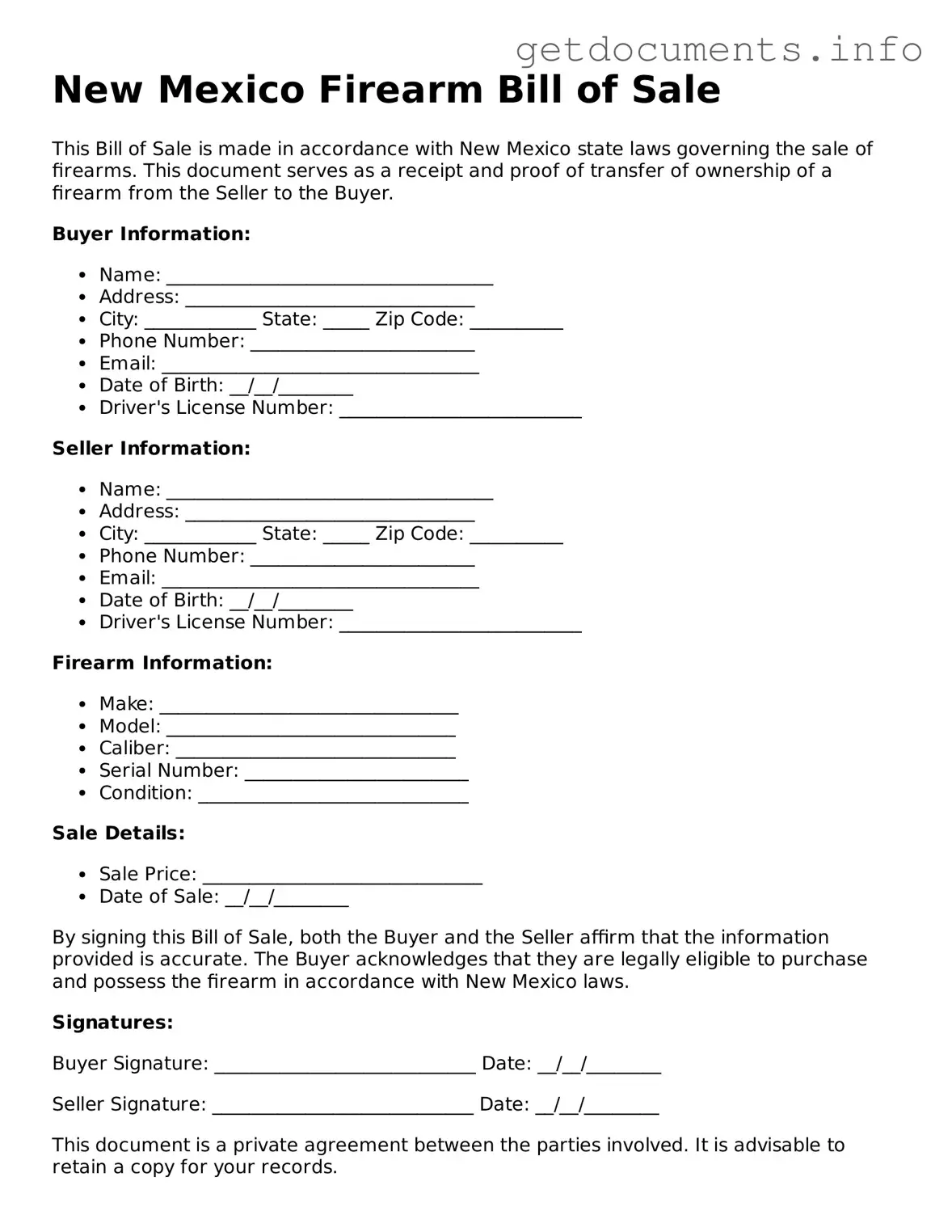Free Firearm Bill of Sale Template for New Mexico
The New Mexico Firearm Bill of Sale form is a legal document that records the transfer of ownership of a firearm between a seller and a buyer. This form is essential for ensuring that both parties have a clear understanding of the transaction and helps to maintain compliance with state regulations. To facilitate this process, consider filling out the form by clicking the button below.
Access Firearm Bill of Sale Editor

Free Firearm Bill of Sale Template for New Mexico
Access Firearm Bill of Sale Editor
Got places to be? Complete the form fast
Fill out Firearm Bill of Sale online and avoid printing or scanning.
Access Firearm Bill of Sale Editor
or
⇩ PDF File
